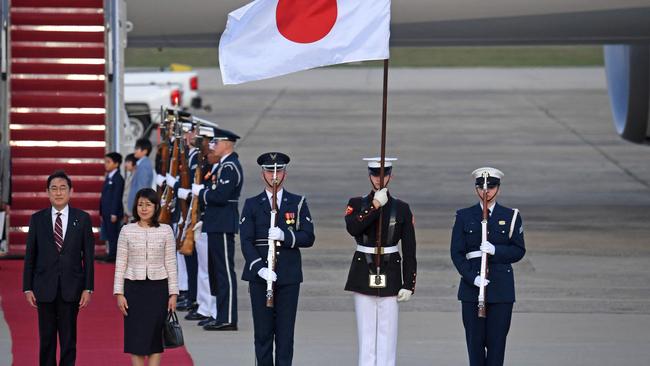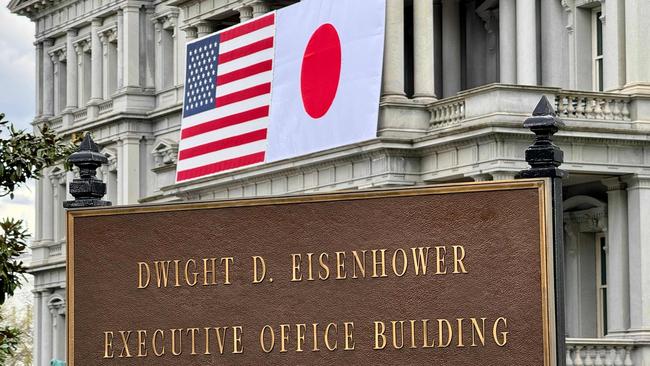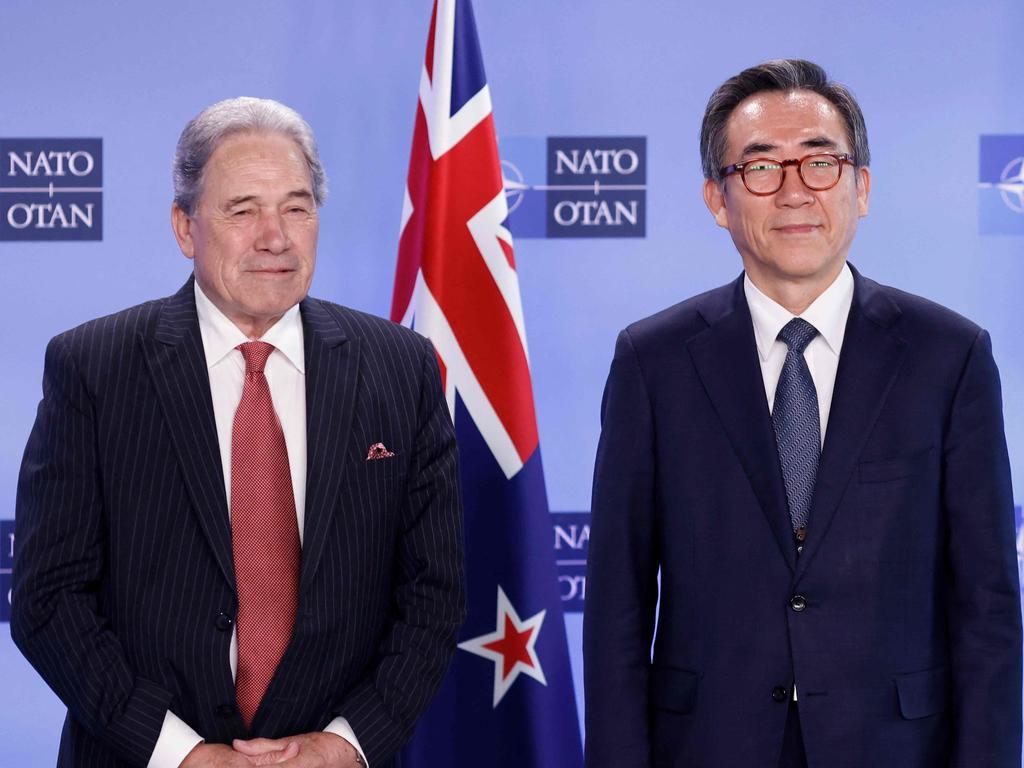With China and Donald Trump looming, is Japan to be trusted?

He will find himself welcomed as one of the closest allies of the United States, an important bulwark against the rising power of China, and Biden will praise his pledge to double defence spending and thank him for allowing Tokyo to export more arms and buy US missiles.
Yet, in other ways, Japan is still mistrusted. When Nippon Steel recently moved to buy US Steel, a struggling Pittsburgh maker, it was blocked by Biden, with the proposed sale to be scrutinised on security grounds.
Why, Kishida may ask, do they trust us to face China with their 400 Tomahawk missiles but not to run a factory in Pennsylvania? The answer lies in the forces ranked against Biden in 2024.
Internationally, the US faces a long-term challenge from China to its status as the world’s only superpower, with President Xi determined that Beijing will not only flourish but dominate.
In the short term, Biden, 81, faces an election against Donald Trump in which issues of foreign influence and the protection of American jobs are in play – hence sensitivity over the ownership of a steel corporation in a key state. Kishida, 66, whose own survival is threatened by low ratings and scandals within his ruling party, will understand.

In some ways, Trump, 77, will be the invisible third presence at the meeting. Kishida knows that in a year’s time he could easily be president again and one of the unacknowledged purposes of the meeting is to lock down elements of the Japan-US relationship in a way that it will be harder for a new administration to make drastic changes of direction.
Trump has spoken of his dissatisfaction with the US-Japan Security Alliance, under which 54,000 American troops, hundreds of military aircraft and the Seventh Fleet are based in Japan. Tokyo’s diplomats reassure themselves with the observation that, whoever is in the White House, US self-interest will not change and Japan is part of that in the era of a resurgent China.
But they recognise Trump’s unpredictability and his past mutterings about requiring Japan to make a greater contribution towards US protection. This is the first state visit to Washington by a Japanese prime minister since the late Shinzo Abe in 2015, but what the concrete result will be is not clear.
Kishida will address a joint session of Congress and hold a separate three-way meeting with Biden and President Marcos of the Philippines, who is hard pressed in the South China Sea, where Beijing is claiming a strategic reef occupied by Manila.
The leaders are likely to make a strong statement warning Xi of the consequences of any attempt to take such territories by force, a move that could trigger confrontation between China and the US. Japan and the US will also talk about making changes to the structure of the American command in Japan, in anticipation of future conflict. At the moment, the most senior US officer in Japan is a three-star general who frequently has to defer to his superiors in the US Asia-Pacific Command in Hawaii. Japan wants the post to be upgraded with a four-star general who can make strategic decisions on the spot, although a change to the existing arrangements is unlikely to be made this week.
There will also be discussion of AUKUS, the trilateral agreement between Australia, Britain and the US. Its principal goal is to provide nuclear submarines to Australia, but a second “pillar” is being developed, which would jointly develop military technology such as hypersonic weapons, cyberwarfare and artificial intelligence. The US is keen for Japan to contribute its expertise, although Canberra wants the focus to stay on its submarines.
The Times







He is too polite to show it, but when Fumio Kishida meets President Biden in the White House tomorrow, he could be forgiven for feeling a little confused.